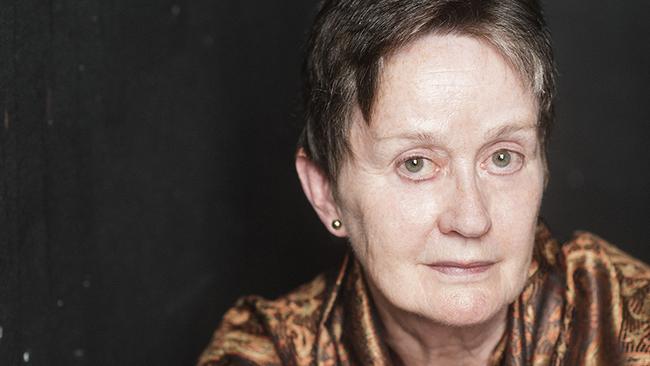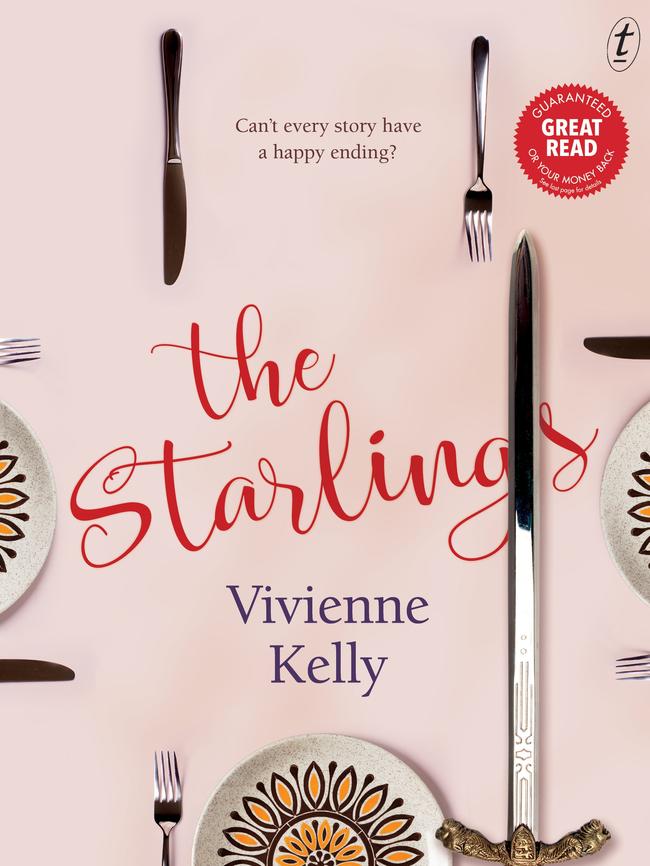The Starlings: through a child’s glass darkly
The Starlings is a compelling piece of storytelling about a boy and his family in the context of sport and literature.

Every so often a popular book comes along that’s so compelling in its storyline, so vivid in its execution, so skilful at bringing to life its characters, that it makes you want to cheer. So it is with Vivienne Kelly’s The Starlings, a racketing novel set in Melbourne in 1985.
It’s centred on Nicky Starling, who as an eight-year-old is obsessed with acting out and rewriting Charles Lamb’s Tales from Shakespeare and the stories of King Arthur and the Knights of the Round Table. His dentist dad, on the other hand, talks incessantly of the glories of the Mighty Hawks, the Hawthorn Aussie rules club.

The Starlings is a charming and compelling piece of storytelling about a young boy and his family — a collapsing and cohering family — in the context of sport and literature.
As the story moves on, our hero, now in his late 30s, comes across a woman in her 60s who was once close to the family. They arrange, awkwardly, to meet, though we don’t spy on their meeting until the end of the book.
As an eight-year-old Nicky acts out his Arthurian and Shakespearean stories with the help of his Heroes of the Cosmos figurines. Meanwhile his grandmother has just died, suddenly, despite her long illness. His schoolteacher mother is appalled when she discovers her mother’s nurse has been given a brooch she thinks of as a treasured family heirloom. Grandpa, however, is insistent that she should keep it, diamonds and all.
The eight-year-old has always been close to the nurse and to his grandfather, and he repeats a couple of things that add to his mother’s suspicions, despite her husband’s forbearance and mercy.
Dad’s obsessive interest in life is the footy and in particular Hawthorn. He talks of little else, especially to his son, who humours his father but has absolutely no love or passion or aptitude for the game. His mother is showing signs of passionate extramarital interests. His sister, a sardonic Year 10 student, is worried and has to seek the advice of the nurse. Everything frays and there are terrible scenes between the little boy, who’s doing his best, and the nurse and the mother, as well as edgy and angry ones between the two women. The shadow of the sundering of families and couples hovers over The Starlings as well as a sense of the pain and stabbing love of families, their brutality, their loyalty and their blindness.
And there’s the comical, sometimes touching whirligig of the lad who rewrites the Morte d’Arthur and Shakespeare to find something equal to his own sense of pain and wonder as well as his own desire for a great game that will order and transfigure the world. His rewrites are laid on with a trowel (and are not always hilarious), and his father’s paeans to Buckenara and Tuck (or whoever) have a complementary epic exhaustiveness that does not cloak the fact he hides in the intricacy of the sport just as his son does in the once and future world he makes his own; and that both impulses are worthy, heartfelt expressions of human need, not simply ridiculous for all their obsessiveness.
The Starlings is an odd book full of headlong lurches into intensity, even horror, as owls swoop over heads and little boys are scared of monsters in the dark and no one quite knows — this is done with a strange, Christian, luminescence — what the no man’s land is between preserving life and letting it go, being true to people and forsaking them for the sake of the holiness (but is it) of the heart’s affections.
Despite conventional stretches, Kelly can have considerable dramatic authority, especially in scenes of confrontation and anger or when the spirit of human idiocy usurps everything else. Her dialogue can be razor-sharp, witty and heartbreaking. If some of it sounds naive, some of it has an uncanny originality as if we had never heard this particular note of a girl’s voice or a child’s or a father’s with this kind of clarity before.
There are structural wobbles. Sturm-und-drang actions and consequences may sometimes seem to be thrown in as an afterthought. But this book has something deeply likeable about it. The obsessiveness of the football fixation and the Shakespeare and Malory through a child’s glass darkly have an uncanny quality that is and is not a vision of another world.
Kelly has a quite sizable novelistic vitamin. People, maybe many people, will feel they could drink a case of her. She has more sparkle and more of a sense of dark places than a lot of more ambitious writers. It’s nice to see a piece of popular fiction, so easy to glide through, exhibiting such grace and intensity of feeling. If this is women’s writing, and soapy writing, we need more of it. It has a sophistication and a savagery, a sort of understanding and intensity that is liable to appeal to a lot of people.
Peter Craven is a literary critic and arts writer.
The Starlings
By Vivienne Kelly
Text, 320pp, $29.99


